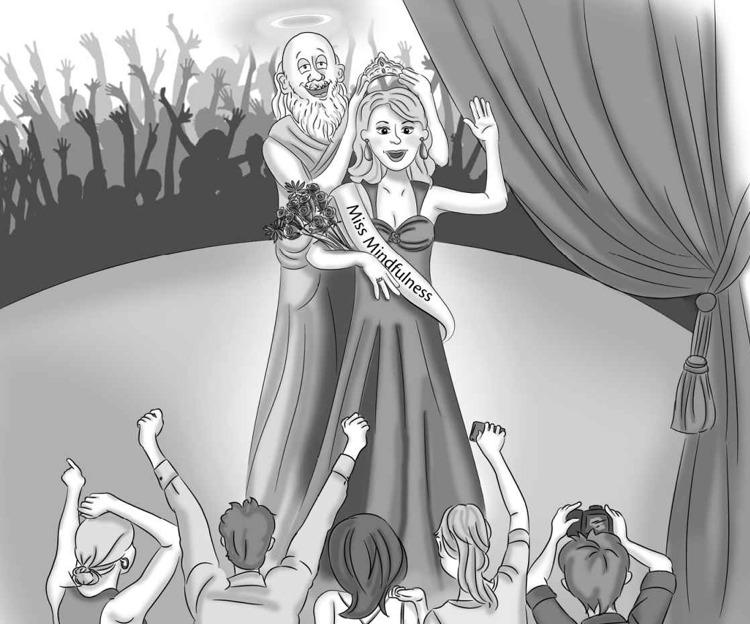
Difficult conversations, Leadership
How to Say No…without sounding like a jerk
The last few weeks I’ve taught a number of courses on time and priority management for busy professionals. One topic that often comes up is the matter of saying no at the office. I often wonder if it’s because I’m based in the South, where we place a special emphasis on “being nice” and “sugar coating” things. And yet it comes up over and over again no matter what part of the US or world I’m working in. Questions like: Our mindset around saying no is Key I often hear concerns about guilt and what will other people think about me if I don’t help them. There are a lot of folks that inadvertently fall into the approval seeking trap. Many of us never develop the strong boundaries in childhood that we need to get us through life, and it rears its ugly head as we get older. And it really is a trap. When you’re stuck in it, you often experience what I call the “Plight of the Martyr,” where you’re constantly solving problems that are urgent for others but ultimately not important to you. And your key priorities fall to the wayside as a result. Think about that continuous improvement project that you’re constantly putting on the back burner. Or perhaps you’re wanting to get back in shape and find yourself sitting at your desk toiling away on an urgent deliverable for someone else and decide to skip that yoga class yet again. What’s interesting is that for some people (myself now included) saying no is not super difficult. When I ask folks who have an easier time why that is the case, they often explain that they value their time. They realize their deliverables and priorities are just as important as others. They also recognize that taking the monkey constantly off another person’s back isn’t a great way for them to learn. That is itself is an interesting reframe, because we often believe we are helping but in many instances, we could be hindering the growth and development of the person asking the favor. Ultimately it comes down to judgement. We do live in a society where reciprocity is valued, and it might make sense to say yes to a request when you recognize you might need a favor down the line. However, if you decide that saying no is the right option, then consider the following technique as a viable option that could save you heaps of valuable time. Use the AIM Framework to say no A – Acknowledge the request. “I can really tell you’re in a bind and I know how important this report is to you and your team.” When we acknowledge we are in effect repeating back that we’ve heard and demonstrate that we’ve understood the request. Don’t skip this part, as it’s important the other person feels that you’re listening and empathetic to their situation. I – Investigate other options. This is when you put on your coaching hat. And rather
October 6, 2022
|
4.5 min read

Career Coaching
Recruiter Spotlight – Kimberly Wilson, TLR Search, “How do I approach a recruiter?”
In this blog I’m sitting down with an amazing colleague and recruiter Kimberly Wilson, owner of TLR Search. Kimberly has over 25 years’ experience as a recruiter based in Houston, Texas. For this short blog post, I’m asking her a question I get asked a lot as a career coach, “How do I approach a recruiter?” About Kimberly Kimberly Wilson enjoys helping energy and chemical company hiring managers gain talent market share by bringing strong diverse talent to their attention and guiding them through any unconscious bias during the search process. Kimberly is the Managing Director/CEO of TLR Search, a recruitment firm she started. Kimberly began her career in retail management learning about customer service, people, and business. Taking that experience along with her education in psychology and sociology, she set out to help companies attract the best unique talent to align with their initiatives and to help individuals/candidates to see potential possibilities in their career. How do I approach a recruiter? When you reach out to recruiters and say “find me a job” it’s important to understand that’s not what recruiters do. I have people who constantly ask, “I’d love to share my background with you, do you have fifteen minutes to chat with me?” Okay, would you do that if you were dating someone? I say that because recruiting is a relationship, just like any other important relationship we have. The bottom line is that if I had fifteen minutes to share with every person who asks me that, I wouldn’t have work to get for those people who are qualified for it. My recommendation is reach out to recruiters but be very thoughtful and make it a win-win. Here’s an example of something that would land much more effectively with a recruiter: “Hi, I identified your organization as one that is doing work within the same sector I’m focused in. I’m always open to looking at opportunities (if you’re still employed) or I’m currently looking (if you’re not employed). I wanted to get on your radar and share my resume. If there is anything in the future, I’d love to hear from you. If you feel I could be of service to you and help you network on another opportunity, I’m happy to do so.” The key is to be of service The key is to be of service when you are sharing your resume. What is the value you bring? Here’s me and how I can create value for one of your clients. At the end of the day, we don’t market ourselves on the benefits we bring, we market ourselves on the value we bring the client. And the client when you’re looking for a job is the hiring manager that has posted the job. Then there’s the networking aspect and being able to assist the recruiter. “Here is how I can be of service and help you find candidates for the clients you serve.” Let’s say a recruiter reaches out to you and you’re
September 19, 2022
|
3.6 min read

Leadership
What We Can Learn From Elizabeth
It was a hot summer day in London, the day of my naturalization. I trekked down to the registrar office in Wimbledon with a few friends, including the two that had sponsored me for citizenship. It didn’t take long for the formalities, considering I’d paid the extra fee for the private ceremony. I was the only one to be sworn in. “Do you swear allegiance to the Queen, all her heirs and all her successors?” the officiant asked. “I do.” And it was done. I was officially a dual citizen. Then the officiant pressed a button, and the music to “God Save the Queen” boomed through the office. My guests all stood up abruptly at attention as if on cue. We sang loudly and somewhat awkwardly to a large cardboard cutout of Queen Elizabeth that stood in the office. I have to admit I thought that was a bit weird. But over time I’ve noticed the amazing quality that Elizabeth had to inspire reverence, even in the most unlikely of subjects. Americans have often had a strange fascination with the British monarchy. We may view the concept as outdated and irrelevant, but then flock to the gossip that surrounds sagas like Charles and Diana, Harry and Megan and the antics of Prince Andrew. And yet, in the background, beyond the chaos and the drama, silently running for seventy years, was Queen Elizabeth. There are many now that will write about her life as a way of honoring her, I don’t profess to know much about her. But I am intimately acquainted with her legacy. And that’s the interesting thing about great leaders. They leave one. great leaders know who they are These are questions I often ask when I’m facilitating a leadership development course. Simple questions on the surface, but usually the most difficult to answer. We’re often so caught up in the minutiae of the day, we don’t take the time to reflect: Who am I? What kind of leader do I want to be? What are my values? What is my mission and purpose in life? How do I want others to experience me? What legacy will I leave? I think Queen Elizabeth knew the answer to these questions. And as a result, she showed up, year after year, with a stoic calmness, a beauty, a grace, a clear sense of duty, that was invaluable to her subjects in times of trouble. and more importantly, they know who they’re not A great leader brings people together in times of hardship, in times of stress, in times of confusion and conflict. They’re able to do this not because they have some sort of magic formula that will make everything all right. There is no such thing no matter how many leadership books you read or Ted Talks you watch that process to have the perfect pill. Great leaders can do it because they’re grounded in their own sense of self-worth. They know who they are and more importantly in the
September 11, 2022
|
3.8 min read

Communication
Feeling resentful about something? Think about this.
Giving feedback is never an easy task. I’ve recently mused about this topic quite a bit, and written a blog recently on the art of straight talk, which highlighted the three elements that are critical to doing this well. And then there’s real life. It’s one thing when it’s a colleague. It’s another thing when that colleague is also a very close friend. My friend Jenny and I have known each other for years, and we’ve also collaborated on a number of projects. She’s one of my favorite people, she’s funny, insightful, hardworking, caring and full of entrepreneurial spirit. She’s commonly the ideas person in our dynamic duo, and I work behind the scenes to help execute her ideas. Lately I’ve been experiencing some frustration relative to what I’m calling the whiplash effect. She has a grand idea, I rush behind the scenes to make it happen, and then it gets shelved. we create resentment when we don’t speak up And so, a couple of glasses of sparkling rose into a business lunch we were having the other day, out it came. I shared with her my frustration, and the grief this had been causing me. It wasn’t a perfect delivery as far as feedback is concerned. I didn’t follow each of the straight talk steps in perfect unison, but then again perfect is the enemy of good. I was still scared, even though she’s my friend. I was scared especially because she’s my friend and this relationship really matters to me. I fully expected her to listen, and she did. I fully expected her to acknowledge the frustration and the mixed messages she’d been sending, and she did. What surprised me was the text she sent me later on. “I’m going to do better.” And she expressed sincere concern for hurting my feelings and sending mixed messages. I had to ask myself why I was so surprised. And then I had a realization. I’m not used to people owning things. I’m not used to reciprocity in relationships. And this isn’t because I think other people are inherently selfish, or I was picking horrible people to surround myself with (although in some instances I could have done a better job on that front). In the past I often took the path of please and appease rather than assert myself and share my concerns. I took that path because I was desperate for people to like me, to have a ton of friends in my network. Unconsciously, this was a hidden measure of success. Interestingly it didn’t matter whether I liked them. I got used to giving more than my fair share. I got used to not sharing my voice or truth on things, then feeling resentful, and rather than expressing it, shoving it down and shaming myself instead. Then I’d have to find ways to numb the pain. Or it would spill out in other passive aggressive ways and ultimately pollute the relationship. when we know our worth, we can
September 2, 2022
|
4.3 min read

Authenticity
Put down the mask and allow yourself to be seen.
As we navigate life’s path, it’s interesting the things that will come up over and over again. I’ve often mused that life will keep giving us the same lessons over and over again until we really learn them. And really learning something is more than learning it on a theoretical level, or a “head” level as I tend to call it. Many of life’s lessons are what I call “heart” level lessons. These are the ones that we must feel. The ones that we need to feel to heal past experiences, so we can let more love into our life, and the shadow of the inner saboteur becomes fainter and fainter. We all wear a mask I had one of these experiences this past weekend. I was on a girl’s trip to Rockport with some friends of mine. The four of us met in a hiking meetup group during the pandemic and have been very close ever since. I hadn’t slept very well during the trip and the last morning I found myself in a very raw and emotional state. The final morning, I started to cry, more like allowed myself to cry and feel some things I’d been shoving away for a while. And then I found myself worrying about things like: “What will they think of me?” “I’m ruining the trip.” “I look silly and I’m embarrassing myself and them.” I sat out on the dock in front of our lovely pastel colored condo and watched the sun come up. The beautiful purples and pinks shimmering through the clouds, the seagulls diving into the water looking for a morning treat. I cried, I was breathing deeply, I was letting out fear I’d been carrying for a while. But I didn’t want to bother the group. I separated myself on purpose so I wouldn’t be a burden to them. The fear and embarrassment of showing strong emotion in front of my newish friends was just too overpowering. I was startled when I felt Carol’s hands on my shoulders. She started to rub my back, and I let her. The important point of this story is I let her. It wasn’t easy I will say, even for me, a coach, someone who teaches communication skills and emotional intelligence. It still wasn’t easy. So often in life, I think we learn that we must be strong. And we take on a very limited view of what that means. We put on a mask that hides our true nature from the rest of the world. I think I’ve often prided myself on being that person in the group that has her proverbial “shit” together. That knows what she is talking about. That never loses her cool. Because I somehow deduced that people won’t like me or want to be friends with me if I let them see who I really am. That it’s not acceptable to ever be “out of control” or need a moment to cry. Which frame do you choose?
August 23, 2022
|
4.5 min read

Authenticity, Emotional Intelligence, Leadership
Feeling is freeing: How to Practice Emotional Intelligence
For years and years, I would have told you that I was a very emotionally intelligent person. I was aware that emotions could take many forms, had many names and I knew intellectually it was important to understand them. Emotional intelligence has been a notable topic for many years, and I considered myself to be one of those wise people who were in the know. Unfortunately, in all of my information gathering on the topic, I ignored one crucial point. That in order to have emotional intelligence you actually have to experience emotions. Who would have thought? The key to emotional intelligence is to not just identify the emotion we are experiencing with a handy dandy robust emotional vocabulary, but to allow ourselves to feel it non-judgmentally. This is a key point, because many of us who grew up in households where emotions were not welcome got used to shoving them down and pretending they didn’t exist. Feeling is freeing When we suppress emotions, it typically doesn’t lead to much good. We end up accumulating hurt on top of hurt and over time these feelings build up until one day we can’t shove them down any longer, and the long-awaited bomb finally erupts. Or we can try to numb them out with the help of food, booze, shopping, video game playing or any other addictive habit we have accumulated over the years. Not a recipe for success either. We often try to squash the negative emotions. The ones we consider to be “bad” like anger, frustration, sadness, guilt, shame (my personal favorite), disgust, overwhelm, anxiety, fear. We’re often not super aware of the oh so subtle tricks we’ve accumulated over the years for disowning these things in ourselves. I feel anxiety before delivering a leadership development program, particularly a new one. Perfectly reasonable, right? And yet, in my head I’m thinking to myself, “Bad Shelley. You shouldn’t be feeling that. You’re only feeling that because you’re a bad teacher and facilitator. If you were better at your job, you’d be more confident and you’d never experience this.” So the anxiety comes up, and I try to swat it down by directing anger at myself for having the emotion in the first place. Or perhaps I’m frustrated or angry at a family member. “Bad Shelley. You shouldn’t be feeling that. You’re only feeling that because you’re a bad niece, sister, cousin, etc. If you were a better person, you would be more caring and emphatic and understand their perspective and where they were coming from.” Here is the mental leap that often eludes us: having and especially feeling an emotion does not make a person “bad.” What matters at the end of the day is what we do with the emotion we’re having. I can be angry and resentful inside and yet I can still manage to put that aside and recognize in the moment exhibiting that behavior would not be helpful. I can choose my response. I feel the way
August 18, 2022
|
4.5 min read
Ask Ms. Mindfulness
Shelley Pernot, otherwise known as the Irreverent Guru of Mindfulness, muses on life, leadership and everything in between. Your one stop shop for career tips, leadership tips and daily inspiration!

It was a privilege to work with Shelley as my leadership coach! The process was structured and yet flexible enough to meet needs as they arose. Shelley helped me to grow, learn more about myself, and to really achieve what I set out to accomplish. We worked on planning, navigating a promotion successfully, and so much more! I experienced many successes as a result of working with Shelley, she has great resources, knowledge, and really helps with setting the foundation to this coaching work. She won’t let you down!
Stacy Campos
Regional Coordinator
Having the opportunity to have Shelley as my Leadership Coach could not have come at a better time in my career. I was recently promoted to CFO and was new to the Senior Management Team. Shelley helped me navigate joining the team as well as helped me to determine who I wanted to be as a leader. The Leadership Circle Profile helped our team to discover our blinds spots and to be able to understand each other better. Working with Shelley not only has affected my professional life in a positive way, but also my personal life. She helped me take leaps and has given me the resources to continue this journey of self-improvement. If you’re looking to find more about yourself and how you can be the best version of yourself, I highly recommend working with Shelley.
Kristen Spedale
CFO
I have been working with Shelley for the past 2 years on my leadership development journey. What I thought would be a straight line, I soon learned with Shelley’s guidance, was a winding path with several ups and downs along the way. Shelley supported me as I took a deep dive into my professional and personal history and learned how it affects my approach and my perceptions. She helped me to slow down and recognize certain behaviors and understand that I can pivot in the moment or try again next time. Ultimately, my work with Shelley turned out to be so much more than what I expected. Her approach to coaching was exactly what I needed.
Nicole Naassan
Senior Vice President, Consulting
I’ve learned more about leadership in the past six months working with Shelley than I have in my 10+ year career. She is an incredible coach with many tools in her toolbox. The guidance and mentorship I’ve received from Shelley has been life-changing. She will challenge your limiting beliefs and inspire new ways of thinking.
Margaret Soltis
Creative Director
I highly recommend Shelley if you need a coach, thought partner, and guide as you consider the next steps in your career. She provides practical tools and advice to help launch your career exploration, but most importantly, she is an expert at helping you cut through the noise of your limiting beliefs. At the end of our time together, I had a much clearer vision of what I wanted in my life and a plan to make it happen. My only regret is that I didn’t find her sooner!
Elizabeth Magnus
My career coaching sessions with Shelley have brought me back to living. It’s been contagious, spreading throughout my personal and professional life. I now have the building blocks I need to continue setting healthy boundaries, the freedom to show up as my authentic self, and an adaption of a growth mindset that has allowed me to make bold decisions and try new things. I’ve discovered that there’s always another way and how to eradicate barriers that lead to tunnel vision. These sessions with Shelley have been a great gift and have given me the momentum I need to continue the journey to be my best self.
Teasha Houston
Art Director
It is amazing to think where I was only 10 months ago when I first started working with Shelley and where I am now. Not only professionally but mentally and emotionally. Shelley helped me navigate out of an unhealthy work environment by challenging me and asking me those tough questions we never seem to ask ourselves. What are the values of a true leader? How do those values align with my own? Shelley challenging me and guiding me through some of those tough questions is what led to my epiphany and me having the courage and confidence to leave an environment that threatened my well-being. She taught me how to become more self-aware and self-compassionate. Reminded me to be kind even when the world would understand if I did otherwise. And the biggest one for me, shutting down that crazy inner voice (we all have it!) and replacing it with being present. Shelley has armed me with tools that I will carry with me for a lifetime. Tools that will help me to continue to grow and learn. Life can be hard but working with someone like Shelley does make it easier. She will help you navigate the good and the bad and you’ll learn so much about yourself in the process.
Michele Feria
Director of Marketing
First of all I would like to say that I would recommend Shelley to anyone needing career guidance. As my counselor Shelley helped me transition my career from bartending to Tech Sales which was a difficult and scary transition for me. From the start Shelley was fantastic. Initially I had no idea of which direction I wanted my career to go, I just knew I wanted it to go somewhere else. Shelley was so kind and patient as she helped me figure this out, and gave me a step by step guide on how to explore my options and make an educated decision. She also helped me assess my skill set which played a large part in directing my energy. I landed a great job within days of my final session with Shelley, and now I’m month 3 I am absolutely loving it and doing very well. It was the perfect job for me and Shelley was the one that got me there. Working with Shelley was one of the best decisions I have ever made, she literally changed my life and I am so much happier for it.
Russell Boxer
Account Executive
